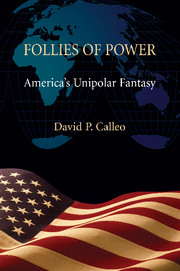3 - The Broken West
Published online by Cambridge University Press: 05 June 2012
Summary
Strategic Dissonance in the West
Over the past several years, West European public opinion, by very large majorities, has been more deeply critical of American policy than at any time since World War II. The Democrats freely criticized the Bush administration's failure to cultivate the European allies, but it was not clear that they were themselves any more willing to defer to European views. At times, the two halves of the West have almost seemed programmed for mutual alienation. Arguably, this is the Iraq War's heaviest cost – for both Europe and for the United States. The Obama administration will hope to restore transatlantic comity. But it will soon confront fundamental geopolitical differences that will require more than a change in atmosphere to manage. These differences have been emerging over the past three administrations.
The European public was leery of the Bush administration from the start, but it was horrified at the terrorist atrocities of 9/11. There followed a spontaneous outpouring of sympathy and solidarity. European publics strongly supported America's retaliatory invasion of Afghanistan. European governments proposed making the invasion a NATO project in which they would participate. Ironically, the U.S. turned down the offer. By contrast, the war in Iraq never was popular with European publics. The governments of France and Germany refused to support the invasion within the UN Security Council. As a result the invasion was initially illegal under international law.
- Type
- Chapter
- Information
- Follies of PowerAmerica's Unipolar Fantasy, pp. 39 - 64Publisher: Cambridge University PressPrint publication year: 2009



